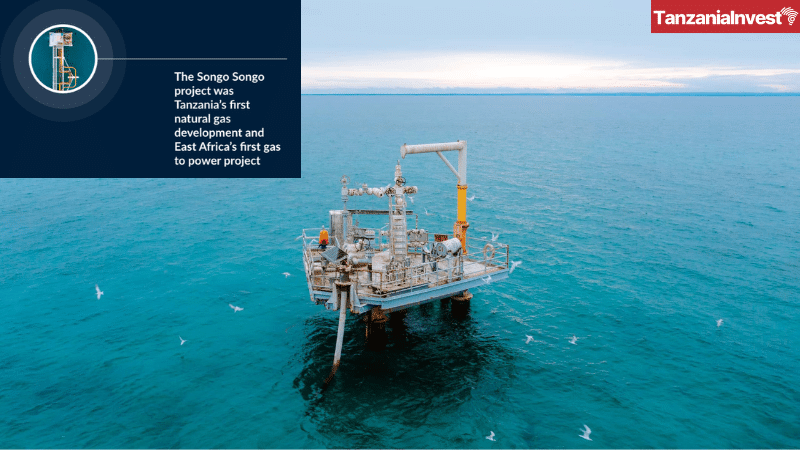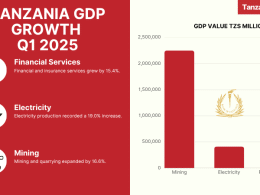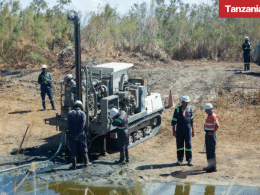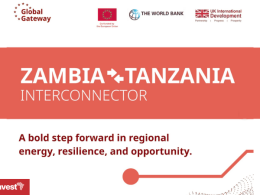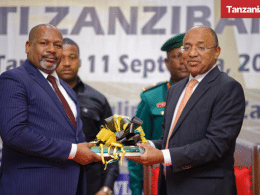On 1 August 2025, Orca Energy Group (TSX-V: ORC.A, ORC.B) announced it had filed arbitration proceedings against the Government of Tanzania and the Tanzania Petroleum Development Corporation (TPDC) over alleged breaches of agreements linked to the USD 1.2 billion Songo Songo gas-to-electricity project.
The company confirmed that its Mauritius-based subsidiary, Pan African Energy Corporation (PAEM), submitted a Request for Arbitration to the International Centre for Settlement of Investment Disputes (ICSID) under the bilateral investment treaty (BIT) between Mauritius and Tanzania.
In parallel, its Jersey-based subsidiary, PanAfrican Energy Tanzania (PAET), submitted two additional Requests for Arbitration to ICSID against both Tanzania and TPDC under the Production Sharing Agreement (PSA) and the Gas Agreement (GA), both signed on 11 October 2001.
The three claims arise from what Orca describes as a series of actions and omissions by Tanzania and TPDC that threaten the viability of the Songo Songo Gas-to-Electricity Project and violate multiple obligations under the BIT, PSA, and GA.
According to Orca, the first breach involves TPDC’s failure to apply in a timely and proper manner for the extension of the Songo Songo Development Licence, which expires on 10 October 2026.
Orca states that when TPDC eventually submitted the application in November 2024, it did so unilaterally, without consultation, and on terms deemed commercially unviable. Since then, Tanzania has reportedly refused to engage in substantive dialogue.
The second claim concerns the Government of Tanzania’s directive to continue the Protected Gas regime after its contractual expiry on 31 July 2024.
Orca states that all production from the Songo Songo field after that date should be treated as Additional Gas under the PSA and sold on commercial terms.
However, TPDC, under government instruction, has insisted on maintaining the Protected Gas framework, which applies lower pricing, primarily to Songas and Tanzania Portland Cement PLC.
The third issue relates to TPDC’s alleged failure to pay royalties required under the project agreements and its attempt to compel PAET to assume those obligations in violation of the PSA and GA.
Orca also cites a broader pattern of harassment. On an ongoing basis, various Tanzanian state agencies have subjected PAET to regulatory and administrative pressures, eroding the stability and security of the investment environment for the Project, PAEM, and PAET.
Before filing the arbitration claims, Orca states that PAEM and PAET issued a Notice of Dispute on 7 August 2024 under the BIT, PSA, and GA.
The company says it spent the subsequent year attempting to reach a negotiated resolution but received no meaningful engagement from Tanzanian authorities.
Orca has appointed the international law firm Boies Schiller Flexner LLP to represent it in all three ICSID proceedings.
While the precise amount of damages for the Claims will be determined in the course of the arbitration proceedings, Orca currently values the Project at approximately US$1.2 billion and plans to appoint an independent expert to assess the damages during arbitration.
Commenting on the situation in the press release, Orca CEO Jay Lyons stated: “Following a mutually successful partnership over the past twenty years, we were disappointed to have to be compelled to initiate international arbitration proceedings against the United Republic of Tanzania and Tanzania Petroleum Development Corporation. Despite our continued willingness to reach an amicable resolution, the lack of meaningful progress has left us with no viable alternative but to take decisive legal action to protect the rights of PAET and PAEM, and the interests of our shareholders.”
Songo Songo
The Songo Songo Gas-to-Electricity Project is Tanzania’s first major natural gas development and plays a central role in the country’s power generation and industrial gas supply.
Located on Songo Songo Island in Kilwa District, Lindi Region, the project began commercial operations in 2004.
It involves the extraction of natural gas from the Songo Songo gas field, which is both onshore and offshore, the transportation of the gas via a pipeline network to Dar es Salaam, and its use for electricity generation and industrial consumption.
The gas is transported through a 232 km pipeline—comprising 25 km offshore and 207 km onshore—to a gas processing plant at Ubungo in Dar es Salaam.
From there, it supplies gas-fired power plants operated by the national utility Tanzania Electric Supply Company (TANESCO) and is also delivered directly to large industrial users, including Tanzania Portland Cement.
The project is operated by PanAfrican Energy Tanzania (PAET), a wholly owned subsidiary of Orca Energy Group, under a 25-year development licence granted in 2001 and expiring in October 2026.
The key contractual agreements governing the project are the Production Sharing Agreement (PSA) and the Gas Agreement (GA), both signed on 11 October 2001 between the Government of Tanzania, TPDC, PAET, and other parties including Songas Limited, a private company that owns and operates the gas processing plant and the 190 MW Songas power plant at Ubungo.
Songas is majority owned by Globeleq, which holds 54.1%, while the remaining shares are held by Tanzanian state institutions: TPDC (28.69%), TANESCO (9.56%), and Tanzania Development Finance Ltd (TDFL) (7.65%), a development finance institution supporting industrial and infrastructure investment in Tanzania.
Under the PSA and GA, gas was categorised as either “Protected Gas”, which was owned by TPDC and supplied at regulated prices to Songas and other users under a 20-year term, or “Additional Gas”, which could be sold commercially by PAET.
The Protected Gas regime officially ended on 31 July 2024, following the expiry of the initial power purchase agreement between Songas and TANESCO. Since then, all gas produced from the field is contractually considered Additional Gas.
The project supplies over 20% of Tanzania’s electricity and is considered essential to the country’s energy security, industrial competitiveness, and efforts to reduce dependence on hydropower and imported fuel.





